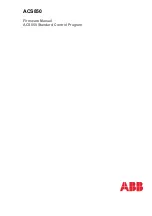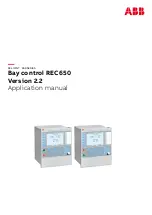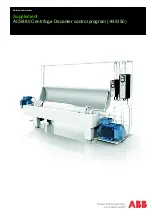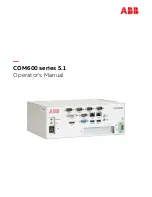
Procedure for cone turning:
• Turn the raw material to diameter d1 before starting. Use this to zero the X-axis by jogging
the X-axis to the depth you just cut after the cut with the jog-keys. Since the last depth
reached is still set in XP, the X-axis stops there. Reaching XP set the X-Axis to 0, then jog to
the end of the material and zero the Z axis on the face surface.
•
Always drive from right to left to compensate for the backlash! Then set the desired values
for the Cone in ZP and XP and start.
• Before starting the process you can select the number of passes and the cutting depth per
pass. The depth is displayed converted to the angle and corresponds to the real depth in
the material.
Due to the cutting radius compensation, it is important to zero the axes in this way:
Available parameters in the parameter menu:
The parameter menu allows quick access to useful settings. It can be reached by navigating
down with the DOWN key. If you change from Feed -> ZP -> XP further down, you enter the
parameter menu. Exit the menu by pressing the UP key or LEFT.
•
Tool Corner Radius
- The radius of the cutting edge, very important for correct radius com-
pensation.
•
X Ap Finish
- Depth of the last finishing pass in mm.
•
Finish feed rate
- Speed of the finishing pass, either as a percentage of the feed rate set, or if
it continues to exceed 100%, also in discrete values in mm/revolution. The roughing pass is
then carried out at the feed rate set in the mode, the last finishing pass at the speed set here
in the parameter menu. So you can roughen quickly and finish slowly to save time.
•
Cone ratio
- Optionally the size of the cone can be specified. (See appendix on the topic). If
you change the cone ratio, the ELS also recalculates the XP. If you change the length ZP with
the cone ratio set, the cone ratio remains the same, XP is recalculated. So you can easily
make the cone longer without changing the cone angle!
79
Summary of Contents for ELS 4 Basic
Page 2: ......
Page 23: ...21 ...
Page 59: ...57 ...
Page 63: ...61 ...
Page 96: ...Zeroing is done as follows Possible grooves 94 ...
















































